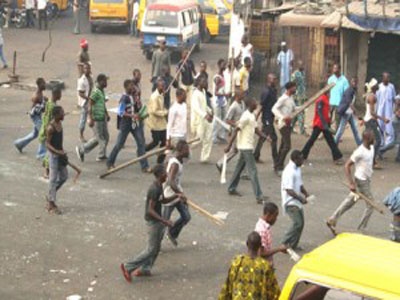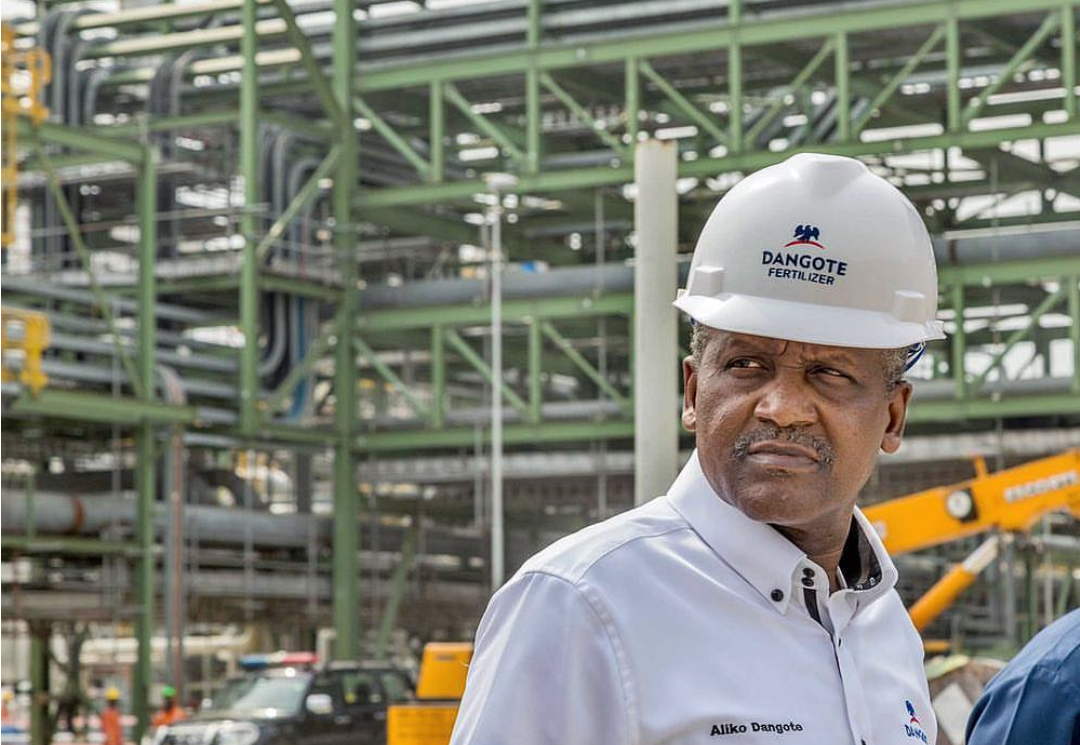By Eric Elezuo
Steadfast and never-say-never entrepreneur, who doubles as Africa’s richest man, Aliko Dangote, has refuted various claims against his petroleum refinery and general enterprise bordering on inferiority and monopolistic tendencies.
The President of Dangote Industries Limited emphatically rejected claims by the Nigerian Midstream and Downstream Petroleum Regulatory Agency (NMDPRA) that petroleum products from his refinery are substandard, in addition to the accusation that the company seeks to monopolize trade, especially in the oil sector.
Dangote rejected the allegations on Saturday when the leadership of the House of Representatives visited and toured the refinery located at the Lekki Free Trade Zone in Lagos.
Speaker Tajudeen Abbas and his deputy Benjamin Kalu led the delegation from the House which included Hon Ikenga Ugochinyere.
To back his position, Dangote and his team tested diesel bought from two filling stations and that from his refinery at the refinery’s laboratories.
The tested diesel from other stations was bought in the presence of the lawmakers, while that from the Dangote Refinery was taken from production also in the presence of the lawmakers.
Two tests were conducted; a test of the sulphur level and a flash test. While all crude-based products contain some level of sulphur, high sulphur levels cause damage to engines and vehicle components.
The flash point refers to the lowest temperature at which the application of the ignition source causes the vapours above the liquid to ignite with the minimum expected flash point at 66.
The results showed that the sulphur content in the diesel from other stations was above 2,631 and 1,829; much higher than the recommended level while the tests for the flash point showed results of 26 and 63 respectively for the diesel from other stations. Both results fell short of the recommended minimum of 66.
The results for the diesel from Dangote turned out to be 87.6 ppm for sulphur and 96 flashpoints.
For Dangote, the result does not only show the reality of products from his refinery, but it also shows that substandard petroleum products are being imported into the country and sold to unsuspecting Nigerians.
‘Probe quality of petrol, diiesel at filling stations’
He called on the House of Representatives to investigate the quality of diesel and petrol at filling stations.
To carry out the investigation, he urged the House to set up a committee to test products at various filling stations across the country.
Decrying the damage being done to vehicles and engines by substandard products, also called on the House to investigate the quality of laboratories being used to test imported products and compare that with the one at the Dangote Refinery.
‘Monopoly Claim Untrue’
Dangote also said the claim in some quarters that his group of companies enjoy monopoly is not true.
“If you look at all our operations at Dangote (Group), we add value; we take local raw materials and turn them into products, and we sell.
“We have never consciously or unconsciously stop anybody from doing the same business that we are doing.
“When we first came into cement production, it was only Lafarge that was operating here in Nigeria…Nobody ever called Lafarge a monopoly,” he said, adding that labelling his group of companies as monopolistic is disheartening.
“Monopoly is when you stop people, you block them through legal means. No, it is a level playing field whereby whatever Dangote was given in cement, for example, other people were given because some of them even got more than us.”
‘No Single Incentive From FG’
The billionaire business tycoon said his refinery did not enjoy any incentive from the Federal Government.
“In the refinery, we did not, and I repeat, we did not collect one single incentive from the Federal Government of Nigeria or even Lagos State. Yes, the Lagos State gave us a good deal but we paid $100m for the land. It wasn’t a free land; we paid for it,” he said.
“Majority of the population are with us. So, we are not discouraged, we will continue what we are doing.”
Addressing the speaker, he said, “The most important thing, your excellency, is to note that the imported one they are encouraging, is the spec in test, but in certain cases when you check (independently), different results will show.”
This, he said, is “because those people who have the lab have been told what to write.”
He said the best way to determine the quality of products being imported and sold to Nigerians is by going to the filling stations, buying and testing them.
Speaker Abbas said going by the presentation and the contradictory claims, there was a need for an investigation.
“I don’t know how we have this contradiction of two players representing the public and private sector,” he said.
“I think it is something we need to investigate further to find out if there are ulterior motives.”
It will be recalled that during the week, a Federal Government of Nigeria petroleum regulatory agency, the Nigerian Midstream and Downstream Petroleum Regulatory Authority, (NMDPRA), dismissed petroleum products from the Dangote Refinery as inferior, making a case for superiority of imported ones.
The revelation was made by the Chief Executive Officer of NMDPRA, Mr. Farouk Ahmed, while responding to questions from a section of the press, a video of which was trending online, adding that the refinery is only 45% completed, and yet to be licenced for operation by the Nigerian government.
In the short video, which lasted a little over a minute, Mr. Ahmed debunked theories attached to the functionality of the Dangote Refinery, saying it does not have the capacity to ‘feed’ the nation of its petroleum needs, as it stands. He however, refuted arguments that some elements within the oil and gas sector were trying to scuttle the Dangote Refinery.
A transcript of the NMDPRA’s boss short response is as follows:
“It about concerns of supply of petroleum products acros the nationwide, and the claim that we are trying to scuttle Dangote. That is not so. Dangote Refinery is still in the pre-commissioning stage. It has not been licenced yet. We haven’t licenced them yet. I think they are about 45 per cent completed, or completion rather.
“We cannot rely on one refinery to feed the nation, because Dangote is requesting that we suspend or stop imports, especially of AGO and DPK, and direct all marketers to his refinery. That is not good for the nation in terms of energy security, and it is not good for the market because of the monopoly.
“Dangote Refinery, as well as some modular refineries like Watersmith Refinery and Aradel Refinery, are producing between 650 and 1,200 PPM. Therefore, in terms of quality, their products are inferior to imported ones,” he stated.
It will be recalled that only last week, the President, Dangote Industries Limited, Aliko Dangote, while hosting senior journalists from across various media concerns, revealed that the Nigeria National Petroleum Company Limited (NNPCL) owns only 7.2% of stakes in the refinery, and not 20 percent as widely circulated. He also revealed that the refinery is set to begin fuel supply in August 2024.
Many stakeholders and respondents have alleged that there’s no love lost between the government of the day and the Dangote Group, and that explains the hiccup situation surrounding the takeoff the $19 billion refinery.
Dangote has been fighting a battle of his life since the establishment of his refinery; from OICs, IPMAN and other concerns, posing the question, who’s afraid of Dangote?

 News6 years ago
News6 years ago
 Featured6 years ago
Featured6 years ago
 Boss Picks6 years ago
Boss Picks6 years ago
 Headline6 years ago
Headline6 years ago
 Headline6 years ago
Headline6 years ago
 Headline6 years ago
Headline6 years ago
 Headline6 years ago
Headline6 years ago
 Headline6 years ago
Headline6 years ago




















